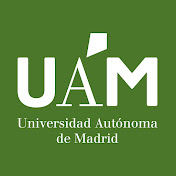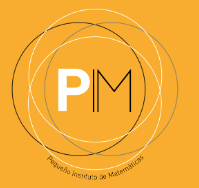Investigación
Noticias Destacadas
 Agenda del Departamento Agenda del Departamento |
- Información (provisional) sobre grupos y horarios de las asignaturas impartidas por el Departamento de Matemáticas, para el curso 2023-2024.
- Propuestas de Trabajos de Fin de Grado para el curso 2023-2024.
|
Canal @matematicasuamEnlace al canal del Departamento en youtube. |
PIM (Pequeño Instituto de Matemáticas)Con el objetivo de fomentar el interés por las matemáticas y dirigido a jóvenes entre 14 y 18 años, nace este proyecto de Instituto de Ciencias Matemáticas (ICMAT) en colaboración con nuestro Departamento, la Universidad Autónoma de Madrid y la Real Sociedad Matemática Española. El proyecto comienzó en el curso académico 2022-2023. Ampliar información en su página web. |
SEMINARIO TEORÍA DE NÚMEROS
Title: An inverse theorem for Freiman multi-homomorphisms and its applications
SPEAKER: Luka Milićević (Mathematical Institute of the Serbian Academy of Sciences and Arts)
DATE: Monday, June 13th - 17:30
PLACE: Online, Microsoft Teams (código: owfo832)
ABSTRACT: In the field of additive combinatorics, one is frequently interested in approximate versions of algebraic structures. One of the key examples of such objects is a Freiman homomorphism. This is a map Phi defined on a subset A of an abelian group G mapping its elements to another abelian group H with the property that whenever a,b,c,d in A satisfy a + b = c + d then Phi(a) + Phi(b) = Phi(c) + Phi(d). When Gand H are vector spaces over a prime field F_p and A is sufficiently
dense, it turns out that Freiman homomorphisms essentially come from restrictions of affine maps (which satisfy the same property, but are defined on whole group).
Let now G_1,..., G_k be vector spaces over F_p. In this talk I am interested in a multidimensional generalization of the notion of a Freiman homomorphism. We say that a map Phi defined on a subset of the product G_1 x ... x G_k is a Freiman multi-homomorphism if Phi is a Freiman homomorphism in every principal direction (i.e. when x_i in G_i is fixed for each i except one direction d, the map that sends
element x_d to Phi(x_1,..., x_k) is a Freiman homomorphism, where we allow those x_d for which (x_1,..., x_k) is in the domain of Phi).
It turns out that a Freiman multi-homorphism defined on a dense subset of G_1 x ... x G_k necessarily coincides with a global multiaffine map at many points. In this talk I will discuss the proof of this fact which Tim Gowers and I proved in a joint work. I will also discuss applications of this theorem and some related more recent developments.






